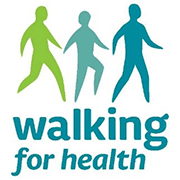2017.11.01
- 調査・研究
© 2020 SASAKAWA SPORTS FOUNDATION
© 2020 SASAKAWA SPORTS FOUNDATION
スポーツ政策研究所を組織し、Mission&Visionの達成に向けさまざまな研究調査活動を行います。客観的な分析・研究に基づく実現性のある政策提言につなげています。
自治体・スポーツ組織・企業・教育機関等と連携し、スポーツ推進計画の策定やスポーツ振興、地域課題の解決につながる取り組みを共同で実践しています。
「スポーツ・フォー・オール」の理念を共有する国際機関や日本国外の組織との連携、国際会議での研究成果の発表などを行います。また、諸外国のスポーツ政策の比較、研究、情報収集に積極的に取り組んでいます。
日本のスポーツ政策についての論考、部活動やこどもの運動実施率などのスポーツ界の諸問題に関するコラム、スポーツ史に残る貴重な証言など、様々な読み物コンテンツを作成し、スポーツの果たすべき役割を考察しています。
2017.11.01
The Tokyo Olympics in 1964 made history by being the first to be telecast internationally and popular sports, including judo and sumo wrestling, were broadcast in colour. Public interest in the Games also created a lasting legacy which organisations around the world have adopted and keep adopting today.
To paraphrase Neil Armstrong on the Apollo 11 moon landing, that’s 10,000 steps for mankind and one giant step for a healthier society.
Published findings found that the average Japanese person took between 3,500 to 5,000 steps per day. A Japanese research team lead by Dr Yoshiro Hatano capitalised on these findings and the nations interest in sports. The team recognised that if this could be increased to 10,000 steps a day, people would become healthier. And so, Dr Hatano began selling a 10,000-step pedometer known as ‘manpo-kei’ (10,000 step meter) and this arbitrary number quickly grew into the ideal daily number to aim for. Japan’s Ministry of Health still recommends a daily walk of 8,000 to 10,000 steps.
Fifty years later the UK National Obesity Forum, which says the average Briton walks about 3,000 -4,000 steps a day, suggests we should aim for between 7,000 and 10,000. The National Health Service (NHS) is promoting “Walking for Health” as it is simple, free and one of the easiest ways to get more active, lose weight and become healthier. In London, the NHS is working with Transport for London (TfL) to encourage walking as part of your journey to work, walking to the shops, using the stairs instead of the lift, leaving the car behind for short journeys. Both organisations are encouraging people to use apps to track how much and how fast you’ve walked. TfL have produced maps showing walking times between stations to encourage a variety of walks including parks, trails, towpaths and nature reserves. My local favourite is from Paddington, which is Zone One to Warwick Avenue, one stop on the Bakerloo Line but in Zone 2. The walk goes along the canal, past the Robert Browning Island in Little Venice, where the Regent’s canal and Grand Union Canal meet. You save money and have a car free walk.


Promotion of walking groups and inspiring walks are growing in popularity along with the more established Ramblers organisation, Britain’s walking charity also promoting walking for health. The UKs National Parks run free guided walks for the whole family during holidays. Walkit, Active 10, Hikideas are just a few of the apps you can download that can suggest routes, journey time, calorie burn, step count and carbon saving.
The technology for a pedometer has changed over the past 50 years with the so called wearable market growing from nothing in the mid-sixties to an estimated $26 billion by 2019 and an estimated 245 million wearable devices being sold next year. Smart watches are now the most valuable segment, taking 60% of market value but fitness trackers remain most popular, accounting for more than half of all wearable shipments in 2016. Smart phones and watches have been tracking our every move and that data usually goes into an app so you can see the results. Most of the apps also allow you to load workout data from other activities and wearables into your phone activity app so it’s all in one place. The iPhone 5 was the first phone to contain a motion coprocessor, developed by the UK’s most successful technology company ARM Technologies, based in Cambridge, recently sold to Japanese SoftBank for £24 billion. ARM technology is used in over 90% of all smart phones worldwide. With the release of the iPhone 6 Apple Health was introduced to present activity data back to its owner via an app on every Apple phone.
Most governments’ guidelines and health agencies plus organisations such as the World Health Organisation (WHO), US Centre for Disease Control (CDC), US Surgeon General, American Heat Foundation, US Department of Health and Human Services recommend daily activity of 10,000 steps. A study published in the Journal of The American Medical Association concluded that use of a pedometer (or a tracking device) is associated with significant increase in physical activity and decreases in body mass index and blood pressure.
At Tokyo 2020 we will all be busy urban adventurers and 10,000 steps a day will be easily completed going from one event to another. It will be a fitting tribute to Dr Hatano that so many people will be doing 10,000 steps in his city 50 plus years after he invented the basic metric to good health.
レポート執筆者

David Minton
Founder, LeisureDB
LeisureDB for the most accurate and insightful data and reporting on the fitness industry.
https://www.leisuredb.com/
Special Advisor, Sasakawa Sports Foundation